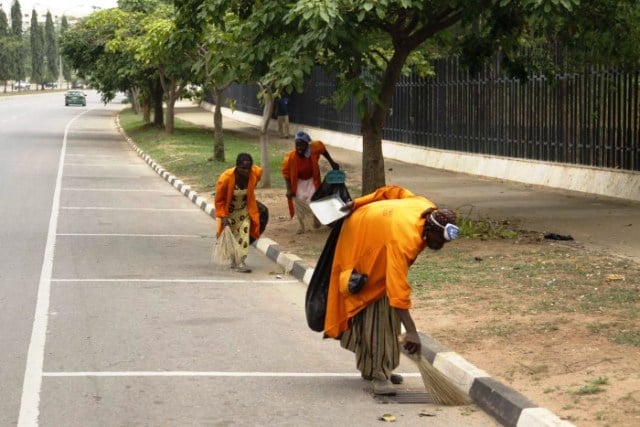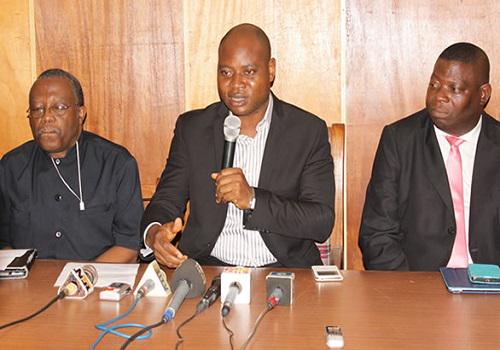A federal high court in Lagos has suspended the execution of the judgment that stopped the Lagos state government from imposing movement restriction on citizens during the state’s monthly sanitation.
On March 16, Ibrahim Idris, the presiding judge, described the restriction as a violation of the right of citizen to personal liberty and freedom of movement, nullifying the power of the government and its agents from arresting anyone found moving during the exercise.
The government subsequently appealed Idris’ judgment.
Lawal Pedro, the solicitor-general of the state, had filed an application for a stay of execution, urging the court to summarily suspend the enforcement of its judgment.
Advertisement
However, on Friday, Mohammed Idris, also a judge of the federal high court, made a fresh order to put on hold the enforcement of the March 16 judgment.
Ebun-Olu Adegboruwa, a human rights activist and lawyer, had earlier filed a suit seeking to stop the restriction on the ground that there is currently no law in force in the state restricting movement of persons for the purpose of observing environmental sanitation.
According to Mohammed, the March 16 judgment would not be enforced until the outcome of the appeal filed by the Lagos state challenging the judgment.
Advertisement
Idris, however, ordered the state to compile the records of proceedings within 90 days, otherwise the stay of execution would be nullified.
Though the judge did not overrule the exercise, he held that the Lagos state and its agents lacked the legal backing to arrest or detain any citizen found moving during the exercise as there was currently no law to that effect.
“I have no doubt that the restrictions imposed on the movement of persons and sanctions meted out to those who breached them are clearly not supported by any law and unjustified,” he had said.
“I must state, loud and clear, that the environmental sanitation exercise is not in itself unlawful, but what is unlawful and unconstitutional is the restriction imposed by the respondents during the exercise.”
Advertisement
But Pedro, in a further affidavit, insisted that the judge did not consider or exhaust all the relevant provisions of the law before arriving at the judgment.
“We were able to show exceptional circumstances in our further affidavit; we exhibited a law which, I must concede, was not brought to the attention of the court,” Pedro said while arguing his case.
“The court would have been more comfortable while arriving at its judgment, if that law was brought before my Lord.”
He made reference to and read Section 28 (1) and (2) of the amended environmental sanitation edict of 1987, which empowered the police, a sanitary officer or a member of the then military task force to arrest without a warrant, any person “found roaming about without lawful excuse within such specific period,” when any normal communal or other civic obligation directed by either the state or federal government was supposed to be observed.
Advertisement
Pedro further likened the movement restriction policy to what obtains during the general election, saying that although he was not aware of any specific law that said movement must be frozen during elections, peculiar circumstances necessitated the policy.
In opposition, the respondent/applicant, Adegboruwa, asked the court to refuse the application for stay of judgment execution, saying that the state had a trade mark of disregarding court judgments.
Advertisement
He said Lagos had been known for undermining the authority of the court and accused the state of deliberately delaying hearing in its own appeal against the judgment.
But one Quduz Lawal, deponent to Lagos state’s further affidavit, debunked the claim, saying: “I specifically deny the allegation of the respondent that it is the trade mark of the respondents/applicants to always disregard court’s judgment.
Advertisement
“There has been no environmental sanitation exercise in Lagos since the judgment of this court was delivered on March 16.
“I also deny that the applicant intends to delay the hearing of the appeal against the judgment of this honourable court.”
Advertisement
Add a comment






